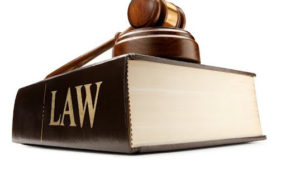Strata Schemes are notorious for disputes. As strata schemes tend to be apartments or closely knit townhouses, the proximity with other owners, forced living arrangements and rules in a strata scheme inevitably lead to disputes and disagreements. This guide will answer some basic questions you may have if you are facing a strata dispute or wish to change or challenge your living arrangements.
How does a Strata Scheme Operate?
All strata schemes in NSW operate under the Strata Schemes Management Act 2015 (NSW)(“the act”). The act governs how strata schemes are managed and the various obligations of the owners, the owners corporation, and the strata managers. The act concerns things such as:
- The appointment of a strata committee who are responsible for and govern the scheme;
- How records regarding the strata scheme are to be kept;
- How the property should be correctly managed; and
- How often the owner’s corporation must hold annual meetings regarding the scheme.
If there is an issue between the owners and the strata corporation it is likely that a remedy is addressed in the act.
Can By Laws be Changed?
One of the main issues in strata schemes are oppressive or unreasonable by laws. Almost all strata schemes have by laws which cover the conduct of the individuals living and visiting the scheme. Common items that are in by laws include:
- Pet ownership;
- Smoking;
- Care and maintenance of the property;
- Garbage collection;
- Parking; and
- Renting (short term Airbnb or otherwise).
As these by laws govern an owner’s ability to use and enjoy the property, this often leads to conflicts between owners, and with the strata management. Some owners may wish for a more pet friendly scheme, while others may wish to prevent smoking. Some schemes are made up of people of a certain age who may wish to restrict the level of noise after certain hours. Other schemes have rules that prevent Airbnb letting. Many of these by laws can be specific to a scheme, so it is important to ensure that before buying, or moving into a strata scheme, you are aware of the by laws and how they will impact your living arrangements.
By Consent
By laws can be amended by consent of the owners corporation and the owners by a special resolution. This is usually done at the annual general meeting of the scheme, however, can be called at other times. Here at Eleven Legal we can assist both owners and the owners corporation to amend their existing by laws, as well as provide advice regarding the changes and registration of the amended by laws. For more information and to book an appointment visit our Strata By Laws page here.
Can you challenge a by law?
By laws can also be challenged by owners for being “unjust”. Under s 139 of the act, a by law cannot be “harsh, unconscionable or oppressive”. What constitutes “unjust” has been discussed in various disputes and can be summarised as “ungentle and unpleasant in action or effect and unreasonably excessive.” If a by law purports to place a restriction on individuals that could impact the owners unfairly, or target certain individuals, it could be challenged and the NSW Civil and Administrative Tribunal (“the tribunal) has the power to repeal these by laws.
Case Study: Pet By laws
A good example of what is a “harsh, unconscionable or oppressive” by law can be characterised in the disputes regarding pet ownership in strata schemes. By laws restricting pet ownership and the type of pets that could be kept in a scheme were so common that they created numerous complaints to NSW Fair Trading and disputes in the tribunal. The tribunal case of Yardy v Owners Corporation SP 57237 [2018] NSWCATCD 19 is a typical example where an owner having a pet was in contradiction of an existing by law which prevented the keeping of pets on the property. In this case, the tribunal established that any pet by law which blanket bans the right of owners to have pets is “harsh, unconscionable, or oppressive”. The reasoning of the tribunal was based not only on the act, but also similar cases in Queensland where it was discussed that community attitudes to pet ownership appear to have shifted towards more pet friendly living arrangements.
In response to the above decision, and similar decisions the act was amended. A new section 137B has been inserted into the act which outlined that any by law restricting pet ownership and any decision by the owners corporation based on that by-law now has no force to the extent that it would “unreasonably prohibit the keeping of an animal on the lot”. What this did was to ensure that no owners corporation could enforce a restrictive by law regarding pet ownership. Section 137B (2) of the act deemed that it is reasonable to keep the animal unless “keeping of the animal unreasonably interferes with another occupant’s use and enjoyment of the occupant’s lot or the common property”. With this there is now also a set criteria for what is deemed as “interference” which has been incorporated into the Strata Scheme Management Regulation 2016 (NSW) section 36A.
If your strata scheme is attempting to force you to remove a pet, or is restricting you from owning a pet, this can be challenged. Our strata lawyers at Eleven Legal can assist you in raising these concerns with your strata scheme or challenging the by laws if necessary.
Can you sue your Strata? Is legal action possible?
There is legal recourse for any owner against the strata scheme in certain situations. This recourse will depend on what has occurred to the owner, and how this could be remedied through legal action.
Removal of Strata Committee or Strata Managers
As the roles in the Strata Committee are elected. There are obligations for these members to manage the strata scheme in the best interests of all the owners and with “due care and diligence” as expressed in Section 37 of the act. If they fail to do so, they could become liable to be removed. There are two ways that a committee member can be removed:
- By special resolution of the strata scheme. This requires a 75% vote in favour of removal; or
- By an order from the tribunal to remove the member.
If you have a dispute with a strata committee, and the other owners in the building also agree with your position, you can all elect to place a motion on the agenda for a meeting to obtain the required votes to have that committee member removed.
If the dispute is serious enough, you can apply to the tribunal to have the member removed. Under section 238 of the act, the tribunal has the power to remove these members. They have broad powers to remove these members based on the dispute.
Strata Managers can also be in breach of the act by failing to run the scheme effectively. If this is the case, it would be the responsibility of the strata committee to dispute the strata managers. Your recourse would be to ask your committee to address your concerns, and from there, the committee and the owners can decide to remove the strata managers. If they refuse to leave, the committee can also go to the tribunal to make an order for them to be removed in exceptional circumstances.
Entitlement to Compensation
One of the main roles of the owners corporation is to approve and maintain works in the building, including in relation to repair and maintenance. Section 106(5) of the act allows an owner to claim damages from the owners corporation for failure and mismanagement of this duty to repair and maintain. For example, if you are unable to access your property due to mismanaged repairs or maintenance, you may be entitled to compensation for that loss.
Next Steps
There are a number of scenarios where you may be in conflict with the owners corporation as outlined above. Our strata lawyers at Eleven legal can assist you with timely advice in dealing with these complex issues and help you prepare for any conflict with the owners corporation. Book an appointment directly here.









